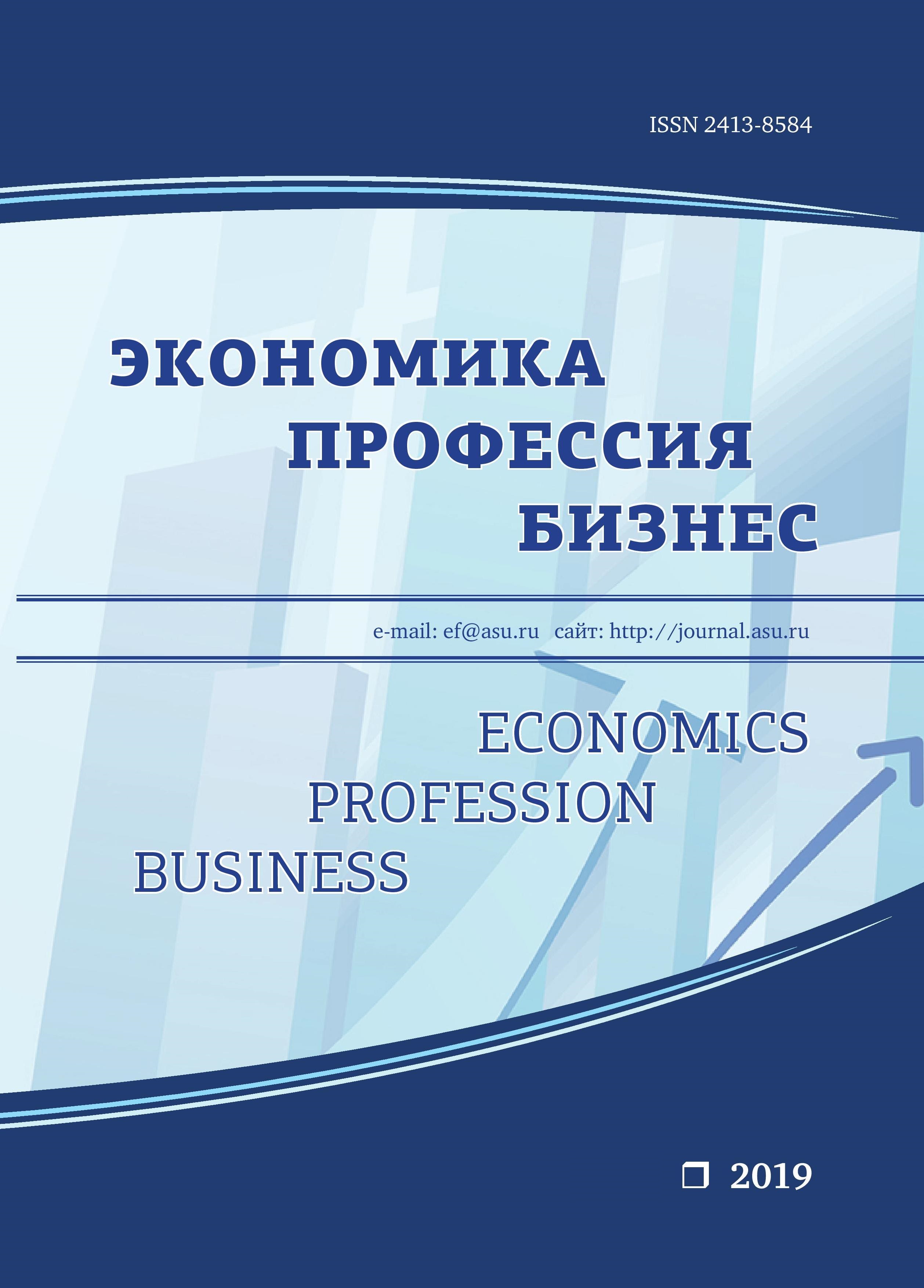PROBLEMS OF ECONOMIC SECURITY AT DIFFERENT STAGES OF DEVELOPMENT OF THE TRANSITION ECONOMY IN RUSSIA
Abstract
In the article the main vectors and stages of development of the transition economy in Russia are substantiated and disclosed. The problems of the country’s economic security at different stages of the transformation, their connection to the crises of the economy in 1992-2018 are shown. The areas of reformation of the Russian Federation transition economy at the each stage in the interests of ensuring the country’s economic security are highlighted. The authors state the problem of the adjustment of the Russian economy to the trends of protectionism and de-globalization in the modern world economy and the formation, together with other countries, of a new globalization model. The importance of the development of international economic organizations in the direction of ensuring international economic security is also noted.
Downloads
Metrics
References
Вымятина Ю., Грищенко В., Остапенко, В., Рязанов В. Финансовая нестабильность и экономические кризисы: уроки Мински // Экономическая политика. 2018. № 4. С. 20-41.
Идрисов Г. И., Княгинин В. Н., Кудрин А. Л., Рожкова Е. С. Новая технологическая революция: вызовы и возможности для России // Вопросы экономики. 2018. № 4. C. 5-26.
Каплинская И. Е., Троцковский А. Я. Экономические кризисы в современной России в контексте основных тенденций развития мирового хозяйства // Финансовая экономика. 2018. № 7. С. 306-311.
Кротов, М. И., Мунтиян, В. И. Экономическая безопасность России: Системный подход: монография. СПб.: РОСТ, 2016. 336 с.
Медведев Д. А. Россия 2024: Стратегия социально-экономического развития // Вопросы экономики. 2018. № 10. С. 5-28.
Оболенский В. От легитимного протекционизма к торговым войнам? // Мировая экономика и международные отношения. 2018. № 9. С. 18-25.
Глобализация vs деглоблиазация: что изменилось для бизнеса [Электронный ресурс]. URL: http:// sia.ru/?section=484&action=show_news&id=369817/ (дата обращения: 10.03.2019).
REFERENCES
Bereznoy, A. (2018) Transnational business in the era of the global digital revolution. World Economy and International Relations, 9, 5-17. (in Russian).
Vmyatina, Yu., Gryshchenko, V., Ostapenko, V. & Ryazanov, V. (2018) Financial instability and economic crises: Lessons from Minsky. Economic Policy, 4, 20-41 (in Russian).
Idrisov, G. I., Knyaginin, V. N., Kudrin, A. L. & Rozhkova, E. S. (2018) New technological revolution: challenges and opportunities for Russia. Questions of Economy, 4, 5-26 (in Russian).
Kaplinskaya, I. E. & Trotskovsky, A. Ya. (2018) Economic crises in modern Russia in the context of the main trends in the development of the world economy.FinancialEconomics, 7, 306-311 (in Russian).
Krotov, M. I., & Muntiyan, V. I. (2016) Russia’s Economic Security: a Systems Approach. St. Petersburg (in Russian).
Medvedev, D. A. (2018) Russia 2024: Strategy of social and economic development. Questions of Economy, 10, 5-28 (in Russian).
Obolensky, V. (2018) From legitimate protectionism to trade wars? World Economy and International Relations, 9, 18-25 (in Russian).
Globalization vs deglobalization: what has changed for business. URL: http://sia.ru/ ?section=484&action=show_news&id=369817/.
Economics Profession Business is a golden publisher, as we allow self-archiving, but most importantly we are fully transparent about your rights.
Authors may present and discuss their findings ahead of publication: at biological or scientific conferences, on preprint servers, in public databases, and in blogs, wikis, tweets, and other informal communication channels.
Economics Profession Business (EPB) allows authors to deposit manuscripts (currently under review or those for intended submission to EPB) in non-commercial, pre-print servers such as ArXiv.
Authors who publish with this journal agree to the following terms:
- Authors retain copyright and grant the journal right of first publication with the work simultaneously licensed under a Creative Commons Attribution License that allows others to share the work with an acknowledgement of the work's authorship and initial publication in this journal.
- Authors are able to enter into separate, additional contractual arrangements for the non-exclusive distribution of the journal's published version of the work (e.g., post it to an institutional repository or publish it in a book), with an acknowledgement of its initial publication in this journal.
- Authors are permitted and encouraged to post their work online (e.g., in institutional repositories or on their website) prior to and during the submission process, as it can lead to productive exchanges, as well as earlier and greater citation of published work (See The Effect of Open Access).









